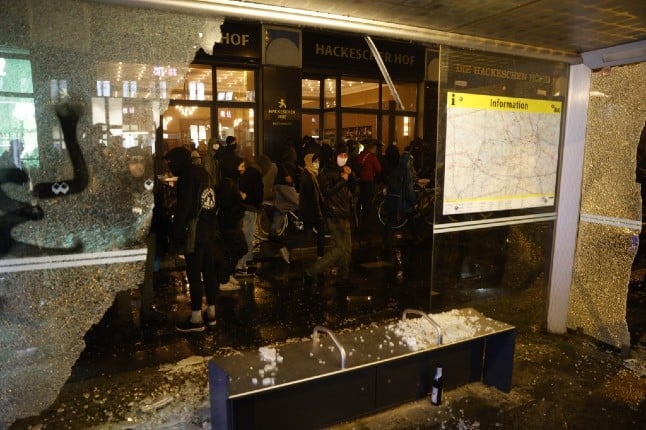A man in a white wedding dress flanked by two others in striped prison uniforms is outside the office of a Spanish lawmaker, pushing for changes to the country's tough eviction laws.
The unusual-looking protest is the latest in a wave of such demonstrations — dubbed "escraches", the Argentine slang word for denunciation — staged outside the homes or workplaces of lawmakers from Spain's ruling Popular Party in recent weeks by campaigners who blame the eviction laws for forcing hundreds of thousands of people from their homes during a deep recession.
"Why am I dressed as a bride? To show that we have come here full of love and not violence," said Daniel Garcia, an activist from the Platform for Mortgage Victims, which organized the protest Wednesday outside the office of lawmaker Eva Duran in Vallecas, a working-class neighbourhood in Madrid.
The grass-roots association wants the government to change Spain's laws to end evictions, allow insolvent homeowners to write off their debts by surrendering their homes and transform repossessed flats owned by banks into social housing.
Under the current law, a bank can pursue a mortgage holder to pay off the remaining balance of a loan if the value of the seized property is not enough.
Parliament agreed in February to debate the reforms proposed by the group after it collected over 1.4 million signatures in an online petition, but last week the Popular Party tabled amendments that would water down some of the key demands.
Spanish courts have executed 252,826 eviction orders — including a record 75,605 last year — since 2008, when a decade-long property bubble burst and Spain sank into recession, throwing millions out of work.
Outrage has been fanned by a string of suicides of people reportedly driven to despair by the prospect of eviction and a 41-billion-euro European bailout of Spanish banks hurt by the property crash.
The Platform for Mortgage Victims (PAH) routinely sends activists to block the entrance to the homes of people about to be evicted in order to prevent police from forcibly removing them.
But earlier this year the group began staging "escraches" as well.
The protest tactic originated in Argentina in the 1990s when activists staged plays and demonstrations against human rights violations outside the homes and offices of officials of the Latin American country's former military dictatorship.
In Spain, the demonstrations have involved activists posting stickers on the entrances to the homes of Popular Party lawmakers, pushing fliers under their doors or using a blowhorn to chant slogans under their office windows.
Prime Minister Mariano Rajoy, in power since December 2011, blasted the "escraches" as undemocratic.
"These days we see that many of our party comrades are being harassed. We have seen episodes of intimidation or verbal abuse towards them, and what is worse, to their families. Nobody deserves to be harassed, vilified, threatened or intimidated," he told a meeting of top Popular Party officials held Wednesday in Madrid.
The interior ministry has said that people who take part in "escraches" would be identified by police and punished.
"Politicians do not want to change the law on mortgages. They criminalize us and say we are terrorists to not change the law," said Manuel San Pastor, a lawyer with the Platform for Mortgage Victims.
"What we want is to visually inform elected officials. They live in a bubble and are not aware of the tragedies that their policies cause."
Last month the European Court of Justice ruled that Spanish legislation infringes European Union law as it does not allow courts to halt eviction orders on the basis of possible unfair terms in mortgage agreements.
Rajoy's government has vowed to make changes to the law to ensure it complies with EU rules, but remains opposed to allowing homeowners to write off their debts by surrendering their home.
"Yet this measure exists in the United States," said Beatriz Garcia, an activist with the Platform for Mortgage Victims, at the protest held Wednesday.



 Please whitelist us to continue reading.
Please whitelist us to continue reading.
Member comments